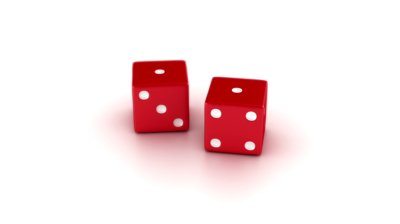Our friends at Nights at the Game Table have another article for us!
Welcome to Warhammer Tactics! Today, we’re changing gears up quite a bit. We aren’t going to be looking at ways to make you play better on the table. Instead, we’re going to be looking at how you can learn more from the time you spend playing the game, by learning how to honestly evaluate your own actions and decisions.
In order to do that, we need to define a term that I’m going to use often, which is Intellectual Honesty. I’d like you to take a look at this picture from Wikipedia, which I’ve crudely circled a few parts from.

As it turns out, it’s really hard to circle things properly on your phone just using your finger!
If you want to read more on the subject, Wikipedia actually has an expansive write up on the subject that’s pretty well written.
In particular, I want to expand on the sections that I’ve circled. They cover and define exactly what I mean when I use the term Intellectual Honesty. In not so many words, it’s the idea of objectively evaluating your own actions as if you are a third party to them. Sort of like back seat driving, except you’re also driving.
The reason we do this is because it removes our own personal bias. Nobody wants to be wrong, and it can be hard to admit that we were wrong on a subject, so it’s common for people to try to come up with a rationalization for why they made that mistake. It’s a perfectly natural response.
It’s also extraordinarily detrimental if you’re trying to improve at playing at 40K. In fact, it’s detrimental if you’re trying to improve at anything.
You need to be able to look at your own decisions in hindsight as objectively as possible, that way you can recognize your mistakes and learn from them so you don’t repeat them.
Now, unlike many other games, 40K has a huge random factor. Almost all games have some degree of randomness, but in 40K every action you take other than movement is random. Hell, even movement can be random if you take the Advance action!
It is this randomness that many players blame their games on. I’m sure you know someone that you feel rolls incredibly well or incredibly poorly. Maybe you are that person. Whoever it is, I want you to keep them in mind as we continue along.
There are two main schools of thought that I’m going to address today in regards to dice and, more specifically, luck. And by addressing them, I will present a third school of thought, or a way of thinking, about your luck that will make you a better player. Adopting this change in yourself will produce far more results than any other tip or piece of tactical advice I, or anyone else can give you.
The more obvious school of thought is the idea of heavily focusing on dice. It’s that person who always says he always rolls poorly. And not in a laughing manner as a way to take something in stride or make it entertaining. It’s the person who’s always pulling their hair out. It’s the idea that if you just had better dice, you’d win all your games.

I’m going to make a personal confession here. I used to be that dude. Don’t get me wrong, I’m still pretty sure I roll well below average! But, these days I take it in stride, laugh, and instead focus on what I could have done better decision wise. If you rewound the clock maybe 6 or 7 years ago, I was the dude who was sure he was always losing because of dice rolls, and that was it. I’m going to use an argument tactic known as reductio ad absurdum here and demonstrate why this approach is flat out wrong.
Reductio ad absurdum is an argument where you disprove a statement by showing that it leads to ridiculous conclusions. So, let’s tackle this idea of dice being the only determining factor of someone losing.. If dice are the only thing that determine if you win or lose, then it logically stands to reason that nothing else determines if you win or lose. Therefore, it would follow that your decisions in the game don’t matter. This is obviously absurd, because you have to make all kinds of decisions to win a game of 40K. No amount of luck can carry you through choosing to never shoot or move models. You have to make decisions, and those decisions matter. And remember, we’re only responding here to the people that only fixate on their dice and don’t focus on their decisions ever.
Next, let’s address the second school of thought, which is something I’ve seen from many a competitive player. To be fair, this line of reasoning is far less wrong, and will make you a much better player than the school of thought I already addressed. I’ve seen a fair amount of competitive players say that, in not so many words, you should ignore the dice entirely, it’s just your decisions that matter. This school of thought does actively encourage you to be a better player, but, it’s not perfect.
Consider for a moment this idea that your dice rolls don’t matter. If your dice don’t matter, then any facings they have also don’t matter. But what happens if you play a game, and your opponent’s dice only have sides of 6, and your dice only have sides of 1? You’ll obviously lose that game, and very badly. And from a more practical standpoint, part of playing 40K well is about responding to those highs and lows of luck.
So, we’ve logically eliminated focusing only on the dice, a common behavior by upset players, and focusing only on our decisions, a common suggestion by competitive players. That leaves us with a third option, an option that’s not often explored, and an option that I’m going to argue to all of you is the only actually correct and 100% intellectually honest way to evaluate your 40K games: Evaluating all of the data, both your decisions and the dice. Obviously, we emphasize our decisions, since that’s what we have control over, but we pay attention to luck we well.

This way, we take in 100% of the relevant information, no matter what the information says. And with 100% information, we become best equipped to analyze what happened, and improve from that reflection. If you outplay your opponent to the point they have to make a 12” charge to win the game, you’ve probably played a very good game. But what if they do get that magic box car roll, a measly 1-36 chance of happening, or about 2.75% ?
Well, you lose, better luck next time. After the game, you can look back on your actions. Could you have made different decisions so your opponent couldn’t have made the charge at all, guaranteeing the win? If so, then you have identified a few things. You’ve identified that you still played very well, your opponent definitely got very lucky, and most importantly, that you could have still played better. With that realization comes improvement. And if there wasn’t a realistic way to stop what happened, then you know that you played a great game and just lost because of bad luck. It’s very rare, but you can win or lose a game strictly to luck. Most of the time, even in games with bad luck, you made some bad decisions and you need to identify them and learn from them.
If you adopt this school of thought, this process of looking at everything that happens in a game with intellectual honesty, I guarantee you’ll become a significantly better player over time. You’ll improve far more than you would from any amount of tactical advice or pouring over your codex.
Remember that person? You know, the person I had you think of earlier? The person with really good or really bad luck? After reading this article, watch them play a game or two. If you thought of somebody who has really bad luck, keep track of how many mistakes they make. Be intellectually honest, and evaluate everything they do. I’m pretty certain you’ll see they make quite a few mistakes, but they don’t realize they’ve made the mistakes. They’re too focused on their luck, which might also be bad. But you’ll see how much better they could have done had they played better.
Alternatively, if the person you thought of was very lucky, instead spectate and watch the game overall. Maybe this person will do something really dumb unlikely but they just happen to roll into it.
But what’s far more likely, is that you’ll see something else going on. Maybe, they’re actually just making lots of good decisions on the table. Maybe, they’re playing a significantly better list.
And if you are the person you thought of, watch another 40K game of your choosing. Just pick someone locally and spectate them for a game. The idea is to get practice analyzing a game.
No matter who you thought of, before now you probably weren’t thinking to analyze games. But after reading this, hopefully you’ll have identified what the player you thought of was doing to “cause their luck”, if you will. And who knows, maybe they are just extraordinarily (un)lucky. But whatever conclusions you draw, use that same analysis that you used on their game, and use it on all of your own. If you keep at it, before you know it you’ll be one of the best players in your local area, because you’ll continue to improve while still having fun playing the game you love.
Well, that wraps up today’s article! I know it was a lot longer, and probably more philosophical than you may have been expecting. But, and I can’t emphasize this enough, this is the single greatest improvement you can make as a player. Making a conscious choice to be intellectually honest about your games and analyzing 100% of the data is how you take your gameplay to the next level. Next week, we’ll be looking at how some old middle-school math can be the key to victory!
To see more great articles like this, along with battle reports, painting tutorials, and lots more, click here to check out Nights At The Game Table!
And remember, Frontline Gaming sells gaming products at a discount, every day in their webcart!




The idea of intellectual honesty is a good one. The real question to me is what is the best way to analyse your game? Do you try replay the game in your head and work out where you went wrong? Do you mentally analyse how useful each individual unit was and how your use of it contributed to your win or loss? Or do you do something else?
The thing about dice is that whilst it’s entirely true that one person doesn’t innately have better luck than another, it’s also true that they can cost you a game through absolutely no fault of your own. The last time I took my Dark Eldar to a tournament, my first turn of shooting was utterly ruined because I failed seven, yes 7, Dark Lance hit rolls in a row, and yes, they were 3+. I did all I could to mitigate the damage (or lack of same) and still pulled out a draw, but ultimately sometimes you can do everything ‘right’ and still just roll 1s all day.
Of course it would help if Dark Eldar had some way of re-rolling 1s that didn’t involve a very squishy character on foot, but hey.
The other thing about dice, tho, is that, no matter how much or how little they affected your game, there’s nothing about the dice themselves that you can change to improve your next game. Acknowledging they have an impact is important, but if you’re trying to improve, the only way the dice are relevant is in establishing a situation. Then, given that situation, you look at how well you mitigated and/or took advantage of where the randomness left you, and what else you might have done about it; look at whether or not there was a better play.
And it’s true, sometimes there isn’t anything better you could have done. But just leaving it at that will never lead to improvement as a player.
And yes, it’s far, far easier said than done. It helps a lot if you can accurately record your games in some manner, so you can look at them later, when there’s nothing else distracting you, without worrying about how memory might have distorted things.
Quite few of best DE players in tournaments I have been have couple of flyers and on first turn manage to have reroll ones. Deploy flyers in corners, fly in front of your own line (which has or has not moved forward). Move archon 6″ from flyers with some chaff in front. Now you have reroll 1’s and enemy has to destroy flyers and chaff before you lose your archon. Of course situation dependent but these guys seem to manage do it all the time.
Also worth bearing in mind is that the likelihood of rolling seven 1s or 2s in a row is roughly 2187 to 1. This is the kind of number where it is likely never to happen in most people’s playing career. So, while it can happen, it’s not really worth considering this kind of occurrence when you’re thinking about analysing a game, and probably isn’t relevant in a discussion on game balance, either.
Much more productive is to think about the probability of success of a certain action (be it killing a unit, making a charge roll or getting that combo of psychic powers off), figure out how vital that success is to your game plan, then figuring out how much you need to stack the odds enough that you’re happy with your chances of success. The more important this success is, the more resources you should commit to ensuring that it works.
In your example, sure, missing with all 7 was unlucky. The fact is though (and I’m making some assumptions about what you might have been shooting at here) that the average damage of 7 dark lances against a t7 vehicle is 11. This means that you would have a 50% chance of destroying a typical t7 11 wound vehicle. For me, this is not enough firepower to reliably kill that vehicle. Bumping the numbers up to 10 shots, though, gives a 77% chance of killing that same t7 vehicle. Much better!
Now, in practice, you will never have a 7 shot dark lance weapon that you have to declare all at once, so you can fire them 3 at a time (assuming ravagers) and see what happens. What you should bear in mind though is that, going into the shooting phase, you will have to be prepared to commit 10 dark lance shots on that one t7 vehicle to reliable kill it in one shooting phase.
Often, this number is much, much higher than people anticipate. These are the scenarios where people start to blame the dice. Putting 5 dark lances into a rhino seems like a sure kill, and when it fails, many people would start cursing their luck. However, when you realise that this round of shooting has only a 34% chance of killing it outright, it starts to look a lot less like bad luck, and a lot more like bad target priority.
I know this isn’t really that relevant to your post but I got carried away here!
I see latin phrases and I have to comment. I believe you’re using equivocation fallacy to describe the “competitive player”.
In one part of the argument you say that dice decide the game and that competitive player says they don’t. The equivocation is equating “dice don’t decide the game” to “dice could never affect the game”. I would say that the competitive player’s position restated would be “The average of dice results in a game is less important than the skill of the players involved”.
Which I think is a much more reasonable position